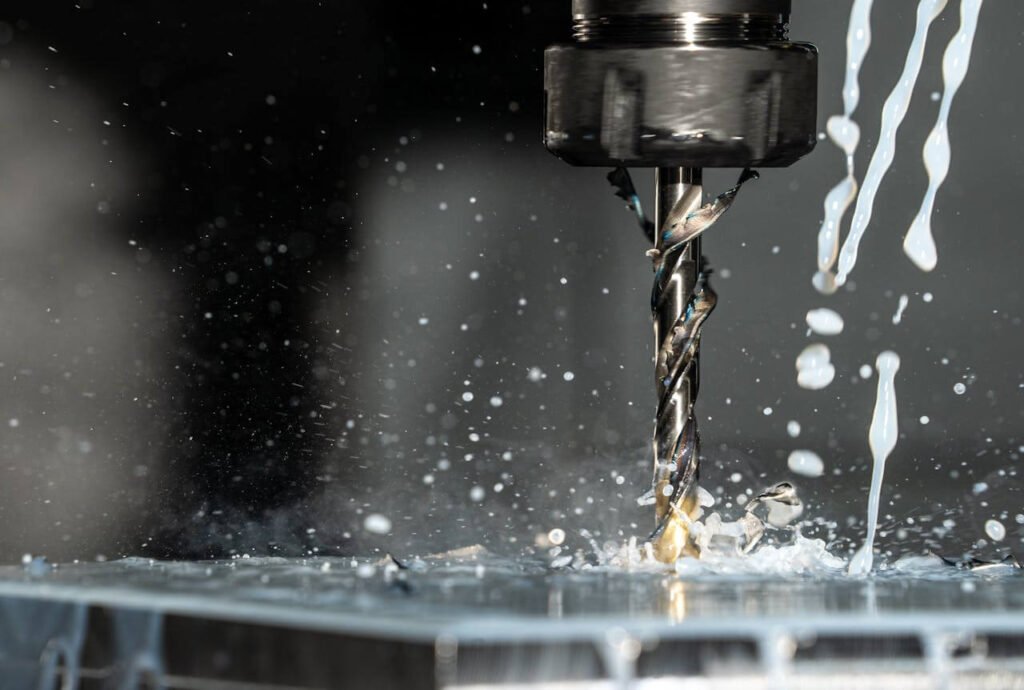Computer Numerical Control (CNC) technology plays a pivotal role in modern industrial manufacturing, streamlining the design and production of complex parts. Industries such as aerospace, automotive, and medical rely on precision CNC services to meet their stringent quality standards. This guide outlines essential factors to consider when selecting a CNC manufacturing service, ensuring you find a partner that aligns perfectly with your project’s specific needs.
Understanding CNC Manufacturing
Before beginning the selection process, it’s crucial to grasp what CNC production includes. CNC manufacturing uses computer-controlled machines to make precision parts from a variety of materials, including metals, plastics, and composites. These machines use programmed instructions to accomplish tasks like drilling, milling, turning, and grinding with extreme precision and repeatability.
Key Factors to Consider
When selecting CNC manufacturing services, several important aspects should inform your decision:
1. Machinery and Technology
The type and quality of machines\ have a direct impact on the quality of the finished product. Advanced CNC machines offer a variety of capabilities, including multi-axis machining, high-speed milling, and complicated geometries. When assessing a service provider, consider the following:
- Machine Capabilities: Make sure the provider’s machinery can manage the intricacy and precision required for your project. Multi-axis machines, for example, provide increased flexibility and precision for complex products.
- Technology Integration: Look for providers who use cutting-edge CNC technology, including CAD/CAM software integration, to ensure a smooth transition from design to production.
- Maintenance and Upgrades: A well-maintained and frequently updated machine fleet demonstrates a dedication to quality and dependability.
2. Expertise and Experience
Experienced operators and engineers can make a huge difference in the success of your project. Consider the following.
- Choose a vendor who has experience in your unique business. They will be better acquainted with industry standards, materials, and typical issues.
- Technical Skills: Skilled technicians and engineers are required to interpret designs, program machinery, and ensure accurate manufacture.
- Portfolio and References: Examine the provider’s portfolio and obtain references from prior clients to assess their performance and dependability.
3. Production Capacity and Scalability
Assessing the production capacity and scalability of a CNC manufacturing service assures that they can satisfy your present and future requirements. Key considerations include
- Batch Size Capability: Make sure the provider can handle the batch sizes you need, whether they are small prototypes or huge production runs.
- Lead Times: Check their lead times to guarantee they can meet your project deadlines. Delays in manufacturing can have a substantial impact on your project timeframe.
- Scalability: Determine whether the company can expand its operations if your demand rises in the future. Flexibility in scaling manufacturing is critical for expanding businesses.
4. Quality Assurance and Certification
Quality assurance is an unavoidable part of CNC machining. To achieve the highest standards, the proper service provider should have strong quality control mechanisms in place as well as appropriate certifications. Search for:
- ISO 9001 certification or equivalent indicates compliance with international quality management standards.
- Inspection Capabilities: Advanced inspection equipment, such as coordinate measuring machines (CMMs), and regular quality audits verify that parts fulfill specifications.
- Process documenting: Comprehensive documenting of manufacturing processes and quality checks improves visibility and traceability.
5. Material Capabilities
Different projects necessitate different materialsConsider:
- Material Expertise: Make sure the provider has expertise working with the materials you want, whether they are metals like aluminum and steel or plastics like ABS and PEEK.
- Supply chain: Consistent production requires reliable access to high-quality raw materials. A provider with a robust supply chain can provide more material selections and dependability.
6. Cost and Value
While money should never be the only consideration in your decision, it is unquestionably essential. Look for a balance between cost and value.
- Transparent Pricing: Make sure the vendor provides clear and detailed pricing, including any additional fees for setup, tooling, or specific materials.
- Value-Added Services: Some providers give extra services such as design assistance, finishing, and assembly, which can increase the value of your project and speed up the manufacturing process.
- Cost Efficiency: Evaluate their capacity to create parts efficiently while maintaining quality, which will eventually lower your entire project costs.
7. Communication and Support
Effective communication and support are required for a successful manufacturing process. Evaluate the provider’s communication channels and assistance.
- Responsiveness: Evaluate their receptivity throughout the inquiry phase to predict future communication.
- Technical Support: Make sure they provide technical support to resolve any issues that develop during production.
- Project Management: Companies with specialized project managers can provide more personalized and coordinated service, keeping your project on track.
Conclusion
Selecting the right CNC manufacturing provider is crucial for your project’s success. An informed decision involves evaluating several key factors: machinery and technology, expertise, production scalability, quality assurance protocols, material capabilities, cost-effectiveness, and customer support. The ideal partner will not only deliver high-quality parts but also enhance the efficiency and effectiveness of your manufacturing processes.
In today’s competitive landscape, carefully choosing a CNC service that aligns with your needs can lead to improved product quality, and reliability, and foster enduring partnerships. Through careful consideration and detailed analysis, you can identify a CNC provider that meets your specific requirements and propels your project toward success.











